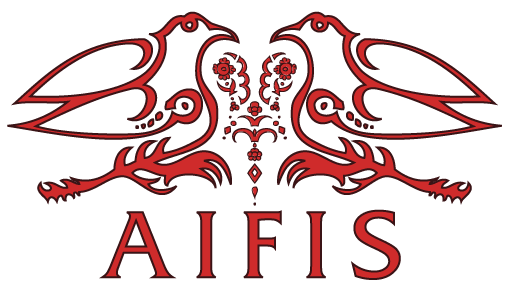Call for Papers
“Asia and the Anthropocene”
The AAS is pleased to invite applications to participate in the second of three workshops in its series “Emerging Fields in the Study of Asia” supported by the Luce Foundation. The second workshop, “Asia and the Anthropocene,” will take place August 23-27, 2018 at the University of Michigan in Ann Arbor.
The purpose of this gathering is to explore the emerging concept of the Anthropocene through shared readings and collective conversations about how scholars of Asia might best respond to the scientific proposal of a new geological epoch. The selection committee seeks bold ideas and broadly framed research papers that grapple with the challenges posed by this new understanding of planetary conditions. Participants will present short papers (20-30 pages, double spaced, including notes) designed to further this new field of study, leaving ample time for discussion. We will also read and discuss certain key texts that are relevant to this emerging field. The workshop will include a field trip to a location to be determined.
The goal of this workshop is to explore a range of ways in which scholars in non-science fields might draw on their regional expertise to engage with the dramatic paradigm shift that sees human beings as a planet-changing species. We welcome a broad range of participants to this workshop but are especially interested in scholars early in their careers (including doctoral students) and scholars based in Asia. Participation will be limited to a maximum of 12 people plus members of the planning committee. While AAS membership is not required for application, if accepted to the workshop participants must become members of the Association for Asian Studies. Papers presented at the workshop may be selected for presentation at a panel at the annual meeting of the AAS and/or for publication (subject to peer review) in a leading journal in the field of Asian Studies.
Definition of the Anthropocene
The concept of the Anthropocene arose among Earth System scientists, explicitly as a geological term, to describe the unprecedented anthropogenic transformation of the Earth System. It can be measured in three complementary ways—through the “planetary boundaries” concept proposed by Johan Rockström and colleagues, the “great acceleration” proposed by Will Steffen and colleagues, and, most explicitly, through the planetary stratum (GSSP) marking the shift from the Holocene Epoch, which is now under consideration by the Anthropocene Working Group. While human beings have always been biological and ecological agents transforming our environment, for the first time ever our species has become a geological force irreversibly altering the Earth System and thus changing the conditions for all living organisms. The date proposed by the scientific community for this rupture is the mid-twentieth century. The challenge for Asianists in non-science disciplines is threefold: to understand this science, to grapple with what the Anthropocene means for Asia, and to explore what it means for our various disciplines.
Issues of the Anthropocene for Scholars of Asia
This proposed new geological epoch has many ramifications for the study of Asia and there is, so far, little consensus about how humanists and social scientists in Asian studies should respond. But, undoubtedly, thinking about Asia is essential for thinking about the Anthropocene because of its sheer weight—in geographical size and population—in world affairs. This workshop seeks to refocus the exclusively Eurocentric lens through which the Anthropocene is often understood by non-scientists.
Among the topics of interest, although certainly not limited to these, are the following questions:
(1) How does understanding the Anthropocene as the result of collective human forces change the relationship between the sciences, on the one hand, and the humanities and social sciences on the other? Some have argued that since human and natural forces have merged, the natural sciences and human-centered studies should merge, while other scholars promote disciplinary pluralism.
(2) What political, social, and economic forces have led to the Anthropocene? Among the answers currently proposed are inequality, industrialization, developmentalism, capitalism, imperialism, globalization, and population growth.
(3) When did these forces emerge and/or become unstoppable? Some point to such things as the invention of fire, agriculture, or industrialization; still others emphasize contingent developments either in the distant past or more recently. Each framing creates a different understanding not only of the origins of the Anthropocene and Asia’s relation to it but also of our capacity to mitigate its effects.
(4) Which cultural, religious, and intellectual constructs have led to the overshoot of earth systems, and which might help us to meet the challenge of our changed conditions?
(5) Are there new forms of community, politics, and economic activity in Asia that might bring hope through adaptation and resilience?
Cost
The summer workshop is supported by a generous grant from the Luce Foundation. Expenses for travel, room, and board will be covered for all participants for the duration of the workshop.
How to Apply
Scholars wishing to participate in the 2018 summer workshop are asked to submit via email an abstract of no more than two pages (single-spaced, 12 point font), accompanied by a CV of no more than two pages to AAS Executive Director Michael Paschal at mpaschal@asian-studies.org. In addition to a short description of the specific issues to be addressed in the proposed paper, the abstract should explain how these issues speak to the larger question of Asia and the Anthropocene.
Applications will be reviewed by a panel of senior scholars who have agreed to act as mentors for the workshop. Questions about the application process or administrative matters should be directed to Michael Paschal at the address listed above. Questions about topic suitability or other substantive issues may be addressed to the organizer, Arjun Guneratne, at guneratne@macalester.edu.
The deadline for applications is October 2, 2017. Successful applicants will be notified by November 6.





